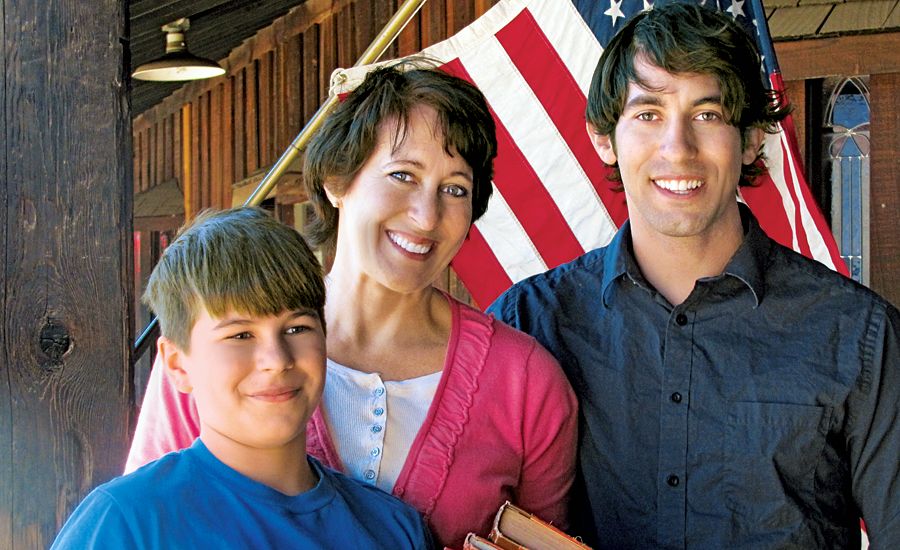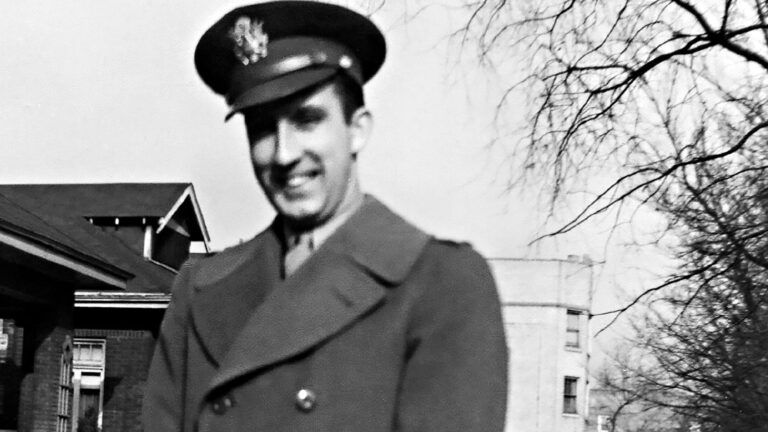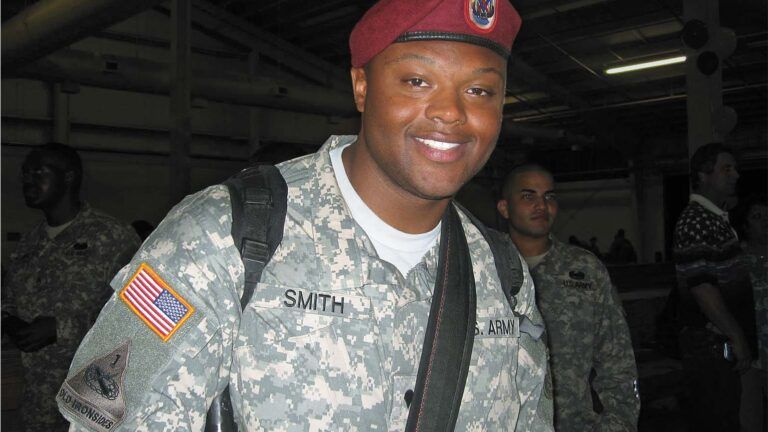Nancy, a volunteer at my local historical society, sat me down at a desk and handed me a pair of white cotton gloves. “Wear these when you’re looking at the old newspapers,” she said. “It protects the pages.”
I opened the big brown folder full of yellowed pages, all the research I would need for the article I was writing about my hometown during World War II. Nancy turned to leave me to it, then stopped. “How’s Nathan?” she asked.
My oldest son was serving in Afghanistan. Nancy knew how much I worried about him. “Last we heard he was fine,” I said.
She left me with my newspapers full of stories about a war that took place 60 years before. Anything I wanted to know–right at my fingertips. But Nathan I hadn’t heard from in weeks.
He was a special ops Marine deployed to one of the most rugged regions of Afghanistan, completely cut off from modern means of communication.
I felt cut off too. Just that morning I’d tried to write him an old-fashioned letter and found myself tongue-tied. Everyday life seemed so foreign to Nathan’s situation, it didn’t seem right to go on and on about it.
Maybe I should just stick to signing “Love, Mom” on a card at the bottom of a care package, I thought. I turned back to my newspapers.
Every yellowed page referenced World War II. News from the front, editorials about the military strategy overseas, photographs of the service men and women from the newspaper’s files.
Even the advertisements were connected to the faraway fight: “Buy Pyrex for your wartime casseroles!” “Support the Troops! Invest in US war bonds today!”
The decades-old pages spoke to me now. Times had changed, but concern for our enlisted loved ones was no different today. How could I begin to comfort my son with words written on a page?
“I forgot to give you this,” said Nancy, coming over to the desk. She carried what looked like an old Macy’s shirt box. “It might help with your story.”
I untied the cotton string that held the box shut and lifted the lid. It was full of letters on thin airmail stationery and Victory Mail, postmarked over several years. “Take your time with them,” Nancy said. “They’re all pretty wonderful.”
I sifted through. Long letters, short. Some marked by a military censor’s pen. Little by little I came to understand: The letters were all written between newlyweds during WWII.
“Dear Ralph, Today I spent the day with your sister and her little baby, then played bridge with others in the neighborhood,” Ellen wrote.
“My dearest Ellen,” Ralph always began, “I received your letters today.” I came to understand why he always started by saying that–receiving those letters was the best part of his day and he wanted to share that joy with her.
At first I felt wrong reading them, as if I was eavesdropping on a private conversation, but as I read on each letter felt less like an intrusion and more like an invitation to discover something I needed not just for my story, but also for myself.
I got to know these two people a little bit, smiling as they must have while sharing their lighter moments. Each missive seemed to me like an angel bearing the comforts of home. I read on and on about the everyday things in their lives, snapshots of what their days were like without each other.
Reminders of what they’ll return to when the war is over, I thought.
“Sorry to interrupt,” Nancy said, “but I need to close shop.” I blinked up at her. Where had the time gone?
I drove home with plenty of information for my story for the paper. But I had something more important to write first: my letter to Nathan. Suddenly I seemed to have almost too much to say.
“Dear Nathan,” I scribbled quickly. “Last night Jack announced that his pet snake was missing somewhere in the house. I didn’t even know he had a snake in the house!”
I could hardly write fast enough, reliving how we’d searched every nook and cranny for his little brother’s pet until we found him under a sink. “He’d escaped from the coffee can where Jack was keeping him,” I wrote. “Apparently he’d made the air holes too big.” I had to stop to laugh all over again.
I told Nathan about his dad’s latest landscaping project in the yard, how the other kids were doing in school–whatever had come up that week. I described the paper chain we’d made to hang in the kitchen: one link for every day until Nathan was scheduled to come home.
Then I tucked the letter into a care package to drop off at the post office.
It was the first of my many letters to Nathan. Even when I didn’t get a return letter right away, I felt closer to him when I wrote. The links of our paper chain came off one by one, until there were only a few left.
Then the whole family was standing in a military receiving area holding a WELCOME HOME NATHAN banner, waiting for his transport bus. I spotted him immediately when he stepped out. He looked thin and tired to his mother, but he scooped me into his arms and hugged me tight.
“Did you get the care packages?” his brother Jack asked when we were settled around the table for a welcome-home lunch.
“I loved them!” Nathan said. “Socks, hand-warmers, beef jerky. You don’t know how great it was to get those in Afghanistan!”
“What was your favorite thing?” Jack asked.
Nathan turned to me. “That would have to be Mom’s letters,” he said. “They made me feel like you were right there with me, talking to me. Just like I was already home.”
My modern dilemma had been solved for all time at the historical society, when I lifted the lid on a box filled to the brim with the comforting voice of angels.
Download your FREE ebook, Angel Sightings: 7 Inspirational Stories About Heavenly Angels and Everyday Angels on Earth





